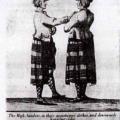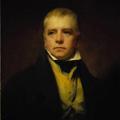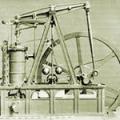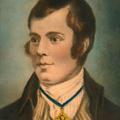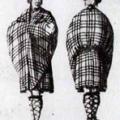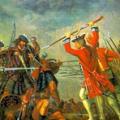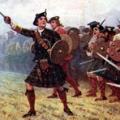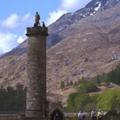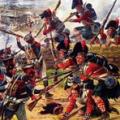Sub Categories
Scottish History
Posted on February 6, 2013 by Donald
The Highland Dress Proscription Act of 1746, designed to punish the clans and destroy their identities and economic structures, was repealed in 1782 after thirty six years in law.
The Repeal went as follows:
"Listen Men. This is bringing before all the Sons of the Gael, the King and Parliament o...
Posted on February 6, 2013 by Donald
Novelist and poet Sir Walter Scott was born in 1771 in Edinburgh, one of six surviving infants from twelve.
At eighteen months he took ill with poliomyelitis but pulled through although with a lame right leg. He was well educated, studying at Edinburgh University. In 1792 he was admitted to the F...
Posted on February 6, 2013 by Donald
James Watt, the son of a merchant, was born on January 19, 1736, in Greenock. He worked as a mathematical-instrument maker as a teenager and soon became interested in steam engines, which were used at the time to pump water from mines. His interest really took off in 1763 when he was given a Newco...
Posted on February 6, 2013 by Donald
Robert Burns was born in Alloway, Ayrshire on 25 January 1759.
His father was a gardener and tenant farmer, and the life he was brought up in made him acutely aware of society’s unfairness as he laboured hard yet lived in poverty.
In 1786 he published 612 copies of Poems, Chiefly in the Scottish...
Posted on February 6, 2013 by Donald
Following the Jacobite defeat at Culloden, the last pitched battle on British soil, Prince Charles fled to South Uist then eventually across to France.
His supporters who remained suffered terribly from ‘Butcher Cumberland’ and his medieval reprisals. To further punish Scotland, Parliament issued...
Posted on February 6, 2013 by Donald
Culloden Moor, known then as Drummossie Muir, was the site of the last pitched battle on the British mainland on 16 April 1746.
The Jacobites were pulling back into the Highlands, ending their siege of Stirling as they headed for Inverness. Despite their victory at Falkirk, Jacobite morale was de...
Posted on February 6, 2013 by Donald
The Jacobites had fought all the way from the Highlands to Derby in England.
Outside of the Highlands it was becoming clear that Prince Charles and his claim was of no interest to Lowlanders or the Northern English, where very few supporters were coming forward. The Stewart intention of using suc...
Posted on February 6, 2013 by Donald
Bonnie Prince Charlie’s landing on Scottish soil ignited a firestorm of incredible stories and willing recruits so that the myths encouraged the masses, who encouraged the myths in a cycle. While the stories were drawing volunteers they were worrying the established powers. Sir John Cope, commandi...
Posted on February 6, 2013 by Donald
In 1745 news was received of a powerful new Jacobite force to arrive from the Continent, headed by the grandson of James VII, returning from exile in Italy.
At Loch nan Uamh in Arisaig, Prince Charles Edward Stewart came ashore with only seven supporters, known later as the Seven Men of Moidart. ...
Posted on February 6, 2013 by Donald
One of the world’s most famous militia was first raised in 1725 and became a Regiment under the Earl of Crawford as Colonel in 1739.
Known then as the 43rd then 42nd Royal Highland Regiment, its Gaelic motto translated into ‘The Black Watch of Battles, First to Come and Last to Go’.
The Black Wat...


